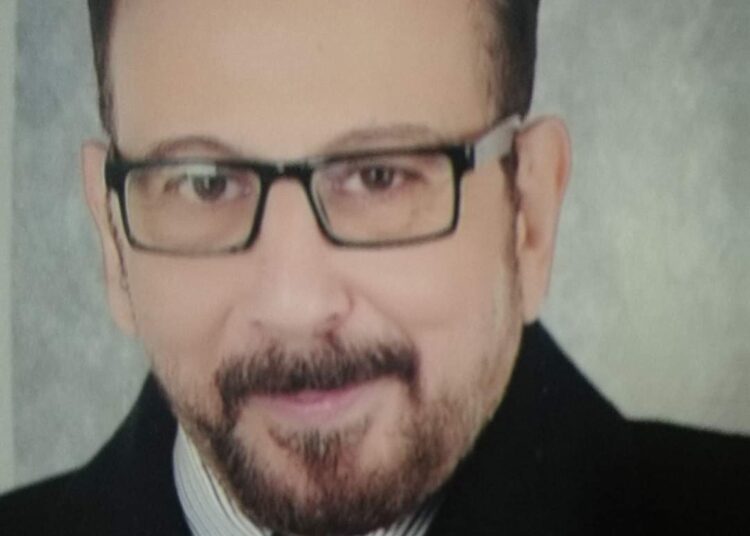By Abdelmonem Fawzi
The idea that one can buy anything with money has enlarged corruption at all levels.
The result is that corruption can be everywhere. It became like cancer in public life, especially in our continent.
Corruption costs African countries combined $148 billion each year, according to Akinwumi Adesina, president of the African Development Bank (AfDB).
Transparency International placed the continent’s countries at the bottom of its financial transparency international rank in its 2018 Index.
Unfortunately, we fight corruption and are victims of it.
The million-dollar question is: Should we accept corruption as a feature of life and carry on or try to fight it where we can?
This disease affects poor and rich citizens, small and large companies, and civil servants, private sector workers and self-employed people.
We are all affected by corruption, directly or indirectly, because its costs are borne by society as a whole.
However, corruption should never be seen as an inescapable fact of life.
This is why the President of Federal Republic of Nigeria, Muhammadu Buhari, reiterated that without deliberate and conscious effort on the part of African leaders to tackle the monster of corruption, illicit financial flows and other acts that derail the set agenda, the objectives would only remain a mirage.
“These lofty goals cannot be achieved if corruption, illicit financial flows, serious and organised crimes are not effectively addressed,” he said at the High-Level Side Event on Food Security Response: Combating Illicit Financial Flows and Securing Asset Returns for Sustainable Development, organised by the African Union Development Agency-New Partnership for Africa’s Development (AUDA-NEPAD), on the margins of the 77th Session of the United Nations General Assembly.
Corruption is a major barrier to economic growth, good governance and basic freedoms.
Nevertheless, the good news is that over the past decades the fight against corruption has been the subject of increasing interest and effort by most leaders and become at the top of the continent’s agenda.
In 2003, the African Union (AU) adopted the African Union Convention on Preventing and Combatting Corruption (AUCPCC), a shared roadmap for states to implement governance and anti-corruption policies and systems at a national and regional level.
To date, 44 of the 55 AU member states have ratified the convention.
The Convention represents a significant step in efforts to counteract corruption across Africa.
However, there is a dearth of information about how well the convention is implemented in practice.
Martha Munthali, senior policy officer (based in Arusha, Tanzania) in the African Union Advisory Board Against Corruption (AUABC), explains that, the AUABC is an organ of the AU, established through the AUCPCC as a mechanism to follow up on its implementation.
It is there, she said, to promote and encourage the adoption of measures and actions by state parties to prevent, detect, punish and eradicate corruption and related offenses in Africa as well as to follow up on the application of those measures and submit a report to the Executive Council of the African Union on a regular basis on the progress made by each state party in complying with the provisions of the Convention.
The board organised a workshop that ended last Thursday and attended by media and communications experts on the continent.
The workshop’s objective was to engage with media/ communications experts on the continent.
However, many people inside and outside the continent do not know much about the services and mission of the AUCPCC.
So, they try to build capacity and awareness about the AUCPCC as well as the board and its mandate.
The workshop provided a platform for experience and knowledge-sharing on the lessons, and challenges that Journalists face, and discussed practical solutions for effective reporting on corruption to strengthen the fight against corruption (I will write about this soon).
Nonetheless, we are forced into deep poverty, diseases and quarrels. The roots of these problems actually stem from corruption.
So, we face the dilemma and the basis of the ancient riddle, namely which came first: corruption or poverty?
Corruption appears because of poor and miserable conditions, in which most Africans are embroiled.
Fighting poverty is the most important action that should be taken into consideration.
We should also change mentality by implementing courses about corruption and society in schools to educate people on negative outside corruption that makes an impact on society.
We need to promote and strengthen the development in Africa by each state party, of the mechanisms required to prevent, detect, punish and eradicate corruption and related offences in the public and private sectors.
We need to focus on the young generations and show them a good example.
We in turn should be aware that wealth comes through hard work and being responsible, not through bribery, stealing or fraud.
It remains, however, to be said that all parts of society, therefore, have an interest in containing this phenomenon and must share responsibility for it.






Discussion about this post